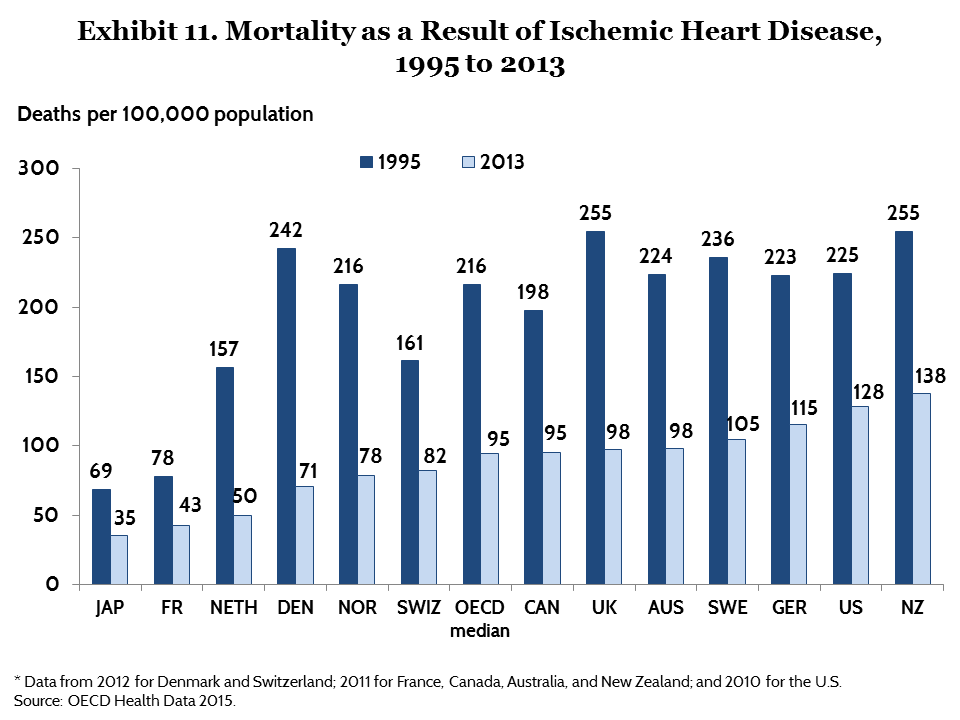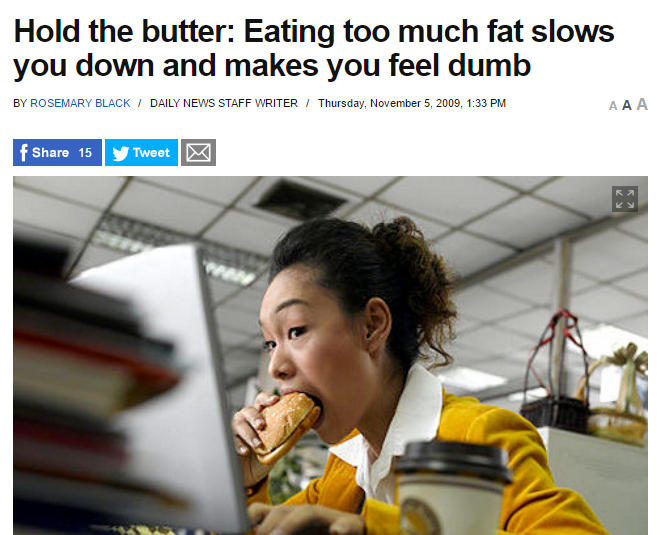|
In 1999, a study authored by Prof Nicholas Wald was released entitled: Why heart disease mortality is low in France: the time lag explanation. The study has been widely cited – 23 times alone via PMC in the U.S. National Institutes of Health's National Library of Medicine – and at the time, it received a lot of press coverage. To put it gently, their grounded hypothesis that deaths from heart disease were about to increase rapidly in France did not pan out. He and Dr Malcolm Law explained how mortality from ischaemic heart disease in France was just one quarter of that in Britain by discounting the much-touted rumour that this was because of greater red wine consumption. They postulated instead that for the French, it was simply a matter of time before they caught up with the British, putting the difference down to the following:
“It is due to the time lag between increases in consumption of animal fat and serum cholesterol concentrations and the resulting increase in mortality from heart disease.” “Evidence”, they wrote “supports this explanation. Mortality from heart disease across countries, including France, correlates strongly with levels of animal fat consumption and serum cholesterol in the past (30 years ago) but only weakly to recent levels. Based on past levels, mortality data for France are not discrepant”. So convinced were they of the animal fat/cholesterol linkage that they continued with the 'good news' that: “while the consumption of animal fat leads to a slow increase in the risk of mortality from heart disease, these risks decrease rapidly upon switching to a healthier diet and lifestyle." And yet… the trouble is, it’s now 2016 and the most recent charts show further decline everywhere, with France (together with Japan) being right down at the bottom of the list… still! Why has France not climbed to American levels as they predicted? Professor Wald is clearly a distinguished scholar, having gone on to become a member of the Royal Society and been knighted, but I cannot find any retraction of this research, which is typical of many studies that have influenced the low fat era in which we still live. On such important topics, should we not have a system whereby original authors comment on what they wrote many years ago, particularly when things have not quite worked out quite as they predicted? And when it comes to France, isn’t it time for some official bodies to admit they have been wrong and that the French paradox is in many ways, a French advantage? Then we could officially begin to debate what that advantage is… Hint: It’s not the Mediterranean Diet. Research quoted: http://www.ncbi.nlm.nih.gov/pmc/articles/PMC1115846/
0 Comments
Arthur Schopenhauer famously said that all truth passes through three stages. First, it is ridiculed; second, it is violently opposed, and third; it is accepted as being self-evident. Back in 2009 as the above article from the New York Daily News shows, eating butter was still being ridiculed and a mix of poor research and industry lobbying was keen to keep things that way. I suspect that now, when it comes to eating butter, we have left that phase but are still somewhere in the second phase of acceptance – for butter will, over time, surely be found to have been heart and cancer healthy all along. Yet the leading luminaries of the nutrition world oppose butter and still prefer ‘marge’, as long as the trans-fats have been removed. Walter Willett, Chair of the department of nutrition at the Harvard School of Public Health admits that as a physician back in the 1980's, he was telling people that they should replace butter with margarine because it was cholesterol free. Today he’s shifted his position a little: he imagines a spectrum ranging from super healthy foods such as blueberries to toxic ones (like a 20-oz Coke, he says) and would put butter “close to the middle, but maybe a little closer to the Coke”. Dr. David Katz, Director of the Yale University Prevention Research Center still “avoids butter, opting instead for olive oil.” Dr. Dariush Mozaffarian, Dean of the School of Nutrition Science and Policy at Tufts University says there is “No evidence it’s good for you, yet little evidence for major harm.” A not very subtle put-down. Dr David Ludwig also of Harvard is a little more positive with: “The next time you eat a piece of buttered toast, consider that butter is actually the more healthful component.” Butter is after all about 50% saturated fat and there the Harvard scholars feel even more sure of their findings. Frank Hu professor of nutrition and epidemiology says “In terms of heart disease risk, saturated fat and refined carbohydrates appear to be similarly unhealthful.” Pretty damning; And a fellow Harvard researcher, Yanping Li points out: “Dietary recommendations to reduce saturated fats should specify their replacement with unsaturated fats (such as vegetable oils) or with healthy carbohydrates, such as whole grains.” For now, butter sales are slowly rising so consumers are voting with their taste buds. But it may be some time before the Harvard team in particular, staunch supporters incidentally of eating whole grain carbohydrates, remind us that they always knew butter was really good for you. Yet, watch this space: in the world of nutrition, stranger things have taken place. Sources:
http://www.hsph.harvard.edu/news/press-releases/butter-is-not-back-limiting-saturated-fat-still-best-for-heart-health/ http://time.com/3896448/butter-saturated-fat/ http://www.scientificamerican.com/article/carbs-against-cardio/ http://www.nydailynews.com/life-style/hold-butter-eating-fat-slows-feel-dumb-article-1.41688 |
Sammy Pepys"FAT IS OUR FRIEND" ADVOCATES A DIET: Sammy Pepys was the pseudonym used by James Capon when writing this book. He is not a doctor or a nutritionist but has studied nutrition and holds an MPH from Edinburgh University. Over the years, he has become increasingly suspicious of today's conventional wisdom about diet and health. When it comes to what we eat, he has helped many learn to eat more healthily.
Archives
May 2020
CategoriesArchive
|
||||||||||||||||||||||||
| 1_blog_march_2014.docx | |
| File Size: | 546 kb |
| File Type: | docx |
| 2_blog_april_2014.docx | |
| File Size: | 245 kb |
| File Type: | docx |
| 3_blog_may_2014.docx | |
| File Size: | 642 kb |
| File Type: | docx |
| 4_blog_june_2014.docx | |
| File Size: | 426 kb |
| File Type: | docx |


 RSS Feed
RSS Feed